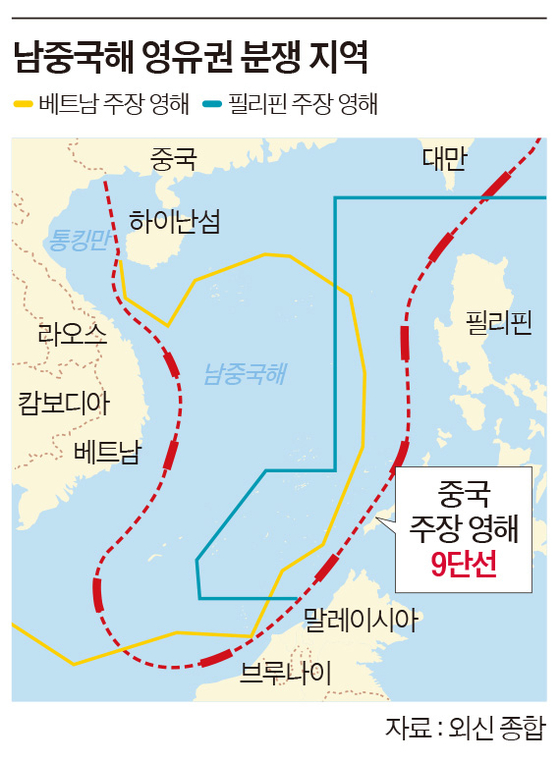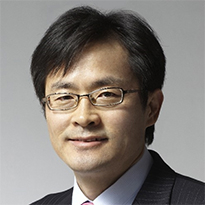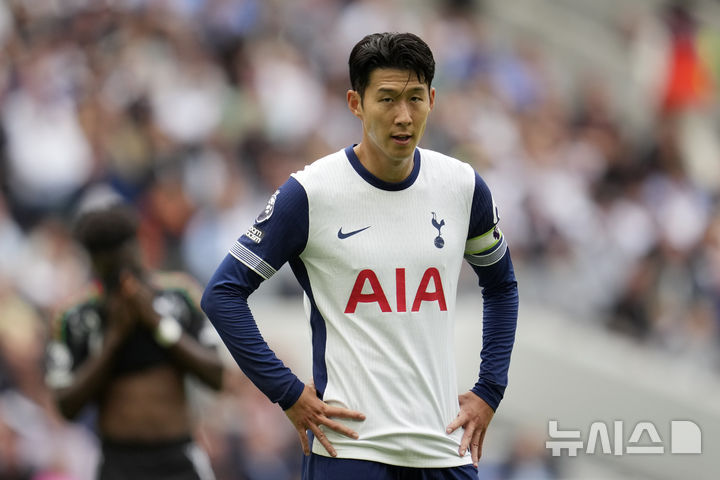[한우덕의 차이나 워치] How did Chinese authoritarianism change China?
‘Science and Technology Competition’ held in Beijing on June 24th. At this conference, President Xi Jinping declared that the country would leap forward as a science and technology powerhouse through the ‘new national system’. This is the beginning of Mao Zedong’s ‘Great Leap Forward in Science and Technology’. [신화=뉴시스]
#1 It was on September 18th that a Japanese elementary school student was attacked and killed by a gunman in Shenzhen, Guangdong Province, China. It was the 93rd anniversary of the Manchurian Incident. Last June, an incident occurred in Suzhou where a Chinese man brandished a weapon targeting a Japanese mother and child.
#2 Last June, China set 2035 as the target year for its ’emergence as a global science and technology powerhouse’. 11 years left. The first plan presented to achieve the goal is the ‘new national system’. This means that we will mobilize all national capabilities to foster science and technology. It is reminiscent of the Great Leap Forward during the Mao Zedong era.
#3 Former U.S. President Donald Trump secretly revealed what he heard from President Xi Jinping at a summit with him in 2017. “He (Xi Jinping) talked about the thousands of years of history between Korea and China. He said, ‘Korea was actually a part of China.’ “After listening to the story for about 10 minutes, I thought, ‘This won’t be easy.’” (Wall Street Journal, April 17, 2017)
Dream of recreating the glory of the Han-Tang era through One Belt, One Road
The three cases occur at different times and locations, and are not in the same field. However, there is one logic that runs through this incident. This is ‘Chinese authoritarianism’. It is an abbreviation of ‘Chinese nationalism’ and ‘Communist authoritarianism’. It is a keyword that encompasses everything that is happening in ‘Xi Jinping’s China’ right now.
First, let’s look at ‘Chinese nationalism’. Xi Jinping, the most powerful person, calls out the ‘Chinese Dream’ whenever he gets the chance. The idea is to ‘revive the great history of the Chinese nation today.’ It is also the code behind his representative policy, ‘One Belt, One Road’. It was during the Han Dynasty that China opened the Silk Road, and the most active exchange of culture and goods along that route was during the Tang Dynasty. The purpose of the Belt and Road Initiative is to recreate the glory of the ‘strong Han Dynasty and the prosperous Tang Dynasty’ today. In this way, One Belt One Road meets Sinocentrism and the Chinese Dream.
The Huai ideology, which places China at the center and views its surroundings as barbarians, is being revived in China today. They are currently trying to incorporate all past dynasties that were in their territory into their country’s history. The ‘Northeast Project’ is still in progress. A nine-dash line was drawn in the South China Sea (graphic) with the perception that ‘we once dominated in the past’, causing conflict with related countries. President Xi’s recognition that ‘Korea was in fact a part of China’ is also in this context.

Graphics = Yoonchae Lee [email protected]
Let’s look at ‘Communist authoritarianism’. This is different. He is different from Deng Xiaoping, the architect of reform and opening up, and also from his predecessors such as Jiang Zemin and Hu Jintao. At that time, there were many voices in the leadership of the Communist Party, and policies were often made through discussions between political factions. However, it is now a one-man regime under Xi Jinping. He rose to a ‘core’ position in the party, and placed his close associates, referred to as ‘Xi Zijun (習家軍)’, in key positions. The media does not allow differing opinions. Western internet, including Google and YouTube, has been cut off, and the digital surveillance network using CCTV is becoming more tightly woven. This is why it is said that the nature of political power during the Xi Jinping era resembles that of the Mao Zedong era.
Even in private companies, party organizations are spreading like threads. There is a dual command system in which party directives and the CEO’s work instructions exist simultaneously. Access to data held by large IT companies must be opened to the country. Private innovation is shrinking, and policy innovation is instead given more importance. As the war for hegemony between the US and China intensifies, what China is emphasizing is science and technology. The party takes the lead and forms a ‘national system’ in the field of science and technology that gathers all of the nation’s capabilities. This is how the ‘R&D (research and development) team’ led by the government and participated by companies and academia is formed. What is different about today’s national power system from the Mao Zedong era is that it strengthens the function of the market. That’s why the term ‘new type’ came about. Mao’s shadow is heavy in China’s goal of entering the ranks of science and technology powers by 2035 through the ‘new national system’. Xi Jinping is currently carrying out a ‘great leap forward in science and technology’.
‘Chinese authoritarianism’ is expressed in various ways. In diplomacy, it appears as wolf diplomacy, in the economic field it appears as patriotic consumption, and in culture, it appears as ‘gukppong’ movies. In schools, red (communist) education and patriotic education are being strongly promoted. That extreme patriotism was expressed in the murder of a Japanese elementary school student in Shenzhen.
The side effects are also severe. In particular, it casts a dark shadow on the economy. The Chinese economy has been able to grow so far thanks to ‘loose (soft) authoritarian politics’ and ‘inclusive economy’. Since reform and opening up in 1978, China has steadily reduced intervention in the private sector and encouraged private autonomy and innovation. Actively participated in the global division of labor system. It is the key to raising the Chinese economy to global ‘number two’.
Clash with the West, shaking up the world’s geopolitical structure
As the ‘Chinese authoritarianism’ of the Xi Jinping era denies this logic, the economy is slowing down. Authoritarian decision-making increases policy failure. The ‘Zero Corona’ policy implemented during COVID-19 is still strangling the Chinese economy. As the ideology of shared wealth overwhelms the market logic of the real estate industry, the entire economy falls into crisis. As regulations on IT platform companies are tightened, youth jobs are decreasing.
Deng Xiaoping said, ‘Whether it is a white cat or a black cat, it is a good cat as long as it is good at catching mice.’ Civil servants were driven to the ‘economic front.’ However, in the Xi Jinping era, ‘the color of the cat’ has become important. Loyalty to the party, understanding of ideology, and integrity are the centers of evaluation. During the Deng Xiaoping era, local officials frequently met with companies to listen to their joys and sorrows and consider ways to support them. However, if you do that now, you are likely to be accused of being a corrupt official. Of course, you have no choice but to save yourself. There is no way the economic scene is going well.
‘Chinese nationalism’ inevitably worsens relations with the West. This is also the fundamental reason why the conflict between the US and China has deepened since 2018. There is also internal criticism that ‘he left Taoguangyanghoe too early and thus made himself an enemy.’ Xi Jinping’s ‘Chinese authoritarianism’ is changing not only China but also the global geopolitical structure.
During the financial crisis that started in New York, China was alone in cheering. What happened in 2008, the inflection point?
Experts studying ‘Xi Jinping’s China’ focus on 2008. The analysis is that ‘Chinese authoritarianism’ was formed from then on.
The same year that the Beijing Olympics were held in China, a financial crisis broke out in New York in the United States. Western economies were struggling due to the rapidly spreading crisis. However, China was able to enjoy growth alone through its bold domestic demand stimulus policy. In 2010, it surpassed Japan and emerged as the world’s second-largest economy. ‘Oh, America, it’s nothing special~!’ The Chinese people, whose pride was heightened by hosting the Olympics, cheered.
Deng Xiaoping said, “Hide the light for 100 years,” but the atmosphere in China in 2013, when Xi Jinping came to power, was different. “Now we have to say what we have to say.” China began to shout ‘no’ to the United States. It is an ambitious impulse to escape from the ‘Western complex’ that was suppressed after the Opium War of 1840. Xi Jinping’s Chinese dream emerged from that context, leading to the rise of ‘Chinese nationalism’.
At that time, China was being divided. Due to rapid marketization, the gap between the rich and the poor has divided the East and West, and income inequality has worsened even in coastal cities. The distance between the party and the people widened due to corruption in management. Nevertheless, in the central political world, there was severe factional strife, such as the ‘Shanghai Bang’ and the ‘Prince’s Party’. Xi Jinping showed astuteness in using this as his political asset. A large-scale anti-corruption fight is his choice.
The sword of corruption held by President Xi did not discriminate between ‘big tigers and small flies’. I caught them all. Ordinary Chinese citizens cheered as millions of corrupt officials were kicked out. The nickname ‘Sidada (習大大·Mister Poetry)’ came about at that time. President Xi drove out political opponents through the assessment, and with the support of the people, political power was once again concentrated in the hands of one person. That is how ‘Communist Party authoritarianism’, with Xi Jinping at its core, was formed.

Han Woo-deok, senior reporter at China Lab

